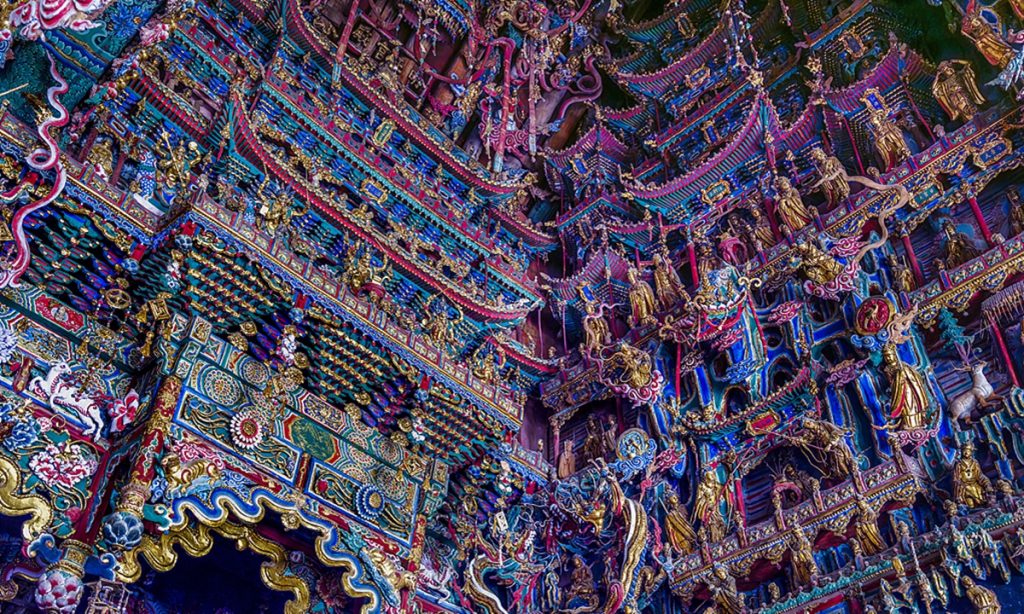Shanxi temple in ‘Black Myth: Wukong’ gears up for National Day

Xiaoxitian Temple in North China's Shanxi Province which has gained renewed popularity for appearing in China's first AAA video game Black Myth: Wukong will host intangible cultural heritage demonstrations, the Ministry of Culture and Tourism (MCT) announced on Tuesday alongside its plans to launch a series of cultural events during the week-long National Day holidays.
To cater to the growing demand for cultural and spiritual experiences and ensure that residents have access to a diverse range of cultural products, MCT announced that nearly 1,000 cultural activities centered on intangible cultural heritage will be held nationwide during the holiday period, Hu Yan, an official with the MCT, told reporters on Tuesday.
Sun Jiashan, an associate researcher at the Central Academy of Culture and Tourism Administration, told the Global Times on Wednesday that using intangible cultural heritage activities to enrich the tourism experience is a strategy driven by shared development.
"The promotion of intangible cultural heritage also needs to adapt to the characteristics of modern cultural and entertainment consumption, and the trend of cultural and tourism integration," said Sun.
Xiaoxitian Temple in Shanxi will host several cultural activities, including performances and exhibits related to national, provincial, and local intangible cultural heritage projects, aiming to highlight traditional Chinese culture and enhancing the tourist experience.
Shanxi is often referred to as the "treasure house of ancient Chinese architecture" due to its 531 nationally protected cultural heritage sites, which make up 10.5 percent of China's total, the highest in the country.
Reports indicate that Black Myth: Wukong features 36 locations across China, with 27 situated in Shanxi. Among these is the Xiaoxitian Temple. The temple's main attraction, the Daxiong Hall, showcases intricate suspended sculptures that have been preserved for over 400 years, housed in a 100-square-meter structure.
Yu Xinsong, a Beijing-based backpacker who intends to go to Shanxi during the coming holiday, told the Global Times on Wednesday that visiting ancient architecture in-person is a unique experience.
"The firsthand experience allows me to see the details of the architectural craftsmanship that would not be seen in games or on TV. The intangible cultural heritage activities will give the site another cultural edge," said Yu.
Meanwhile, 14 special eco-tourism routes will also be launched during the holiday. These routes will utilize national parks, scenic areas, forest parks, wetland parks, and geological parks as core destinations. By linking these natural attractions with major transportation routes, the initiative aims to provide convenient travel options for tourists seeking eco-friendly and leisurely holiday experiences, Wei Lizhong, an official with the MCT, told reporters on Tuesday.
In Beijing, the Badaling section of the Great Wall recently introduced a new "Morning Great Wall" experience, allowing visitors to access the Great Wall between 4:30 and 7:30 am daily. This unique opportunity offers an ideal vantage point from the South Fifth Tower, one of the best spots to witness the sunrise over the historic structure.
The Sichuan Provincial Department of Culture and Tourism announced on Monday that over 1,900 cultural and tourism events will be held during the holiday, with a focus on celebrations, artistic performances, intangible cultural heritage showcases and museum exhibitions. Among these events, the "Chengdu-Chongqing International Theatre Twin Cities" festival stands out as the largest urban theater festival in Southwest China. It will feature the longest duration and the highest number of international performances in the region, aiming to elevate the cultural vibrancy and global connections of the two cities.